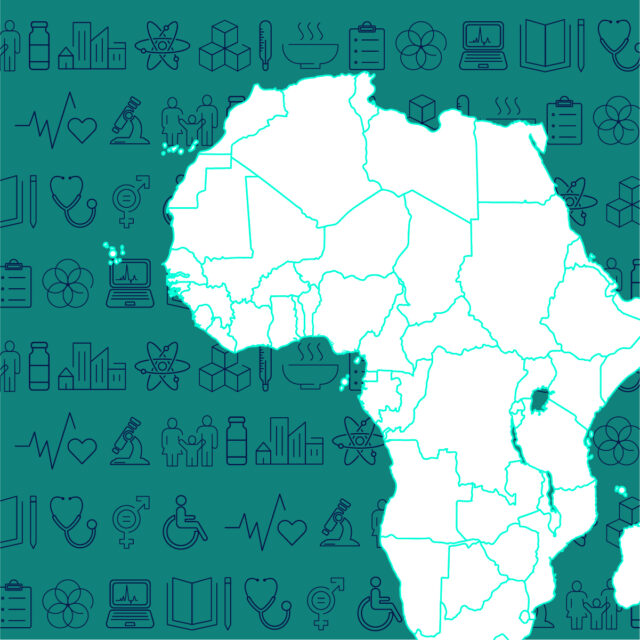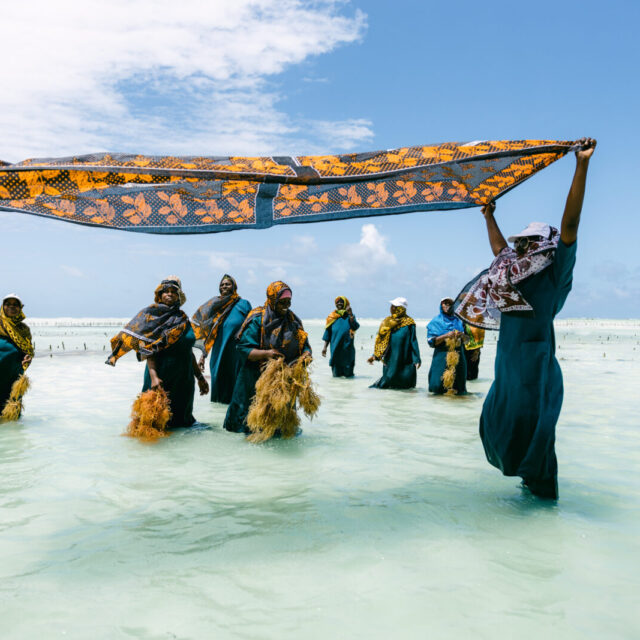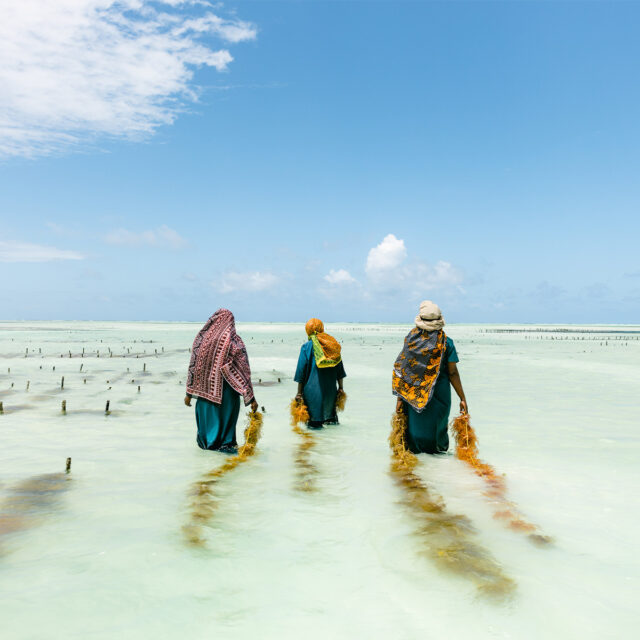Top news
Breaking news (and norms): The IMF endorsed the creation of the Resilience and Sustainability Trust as a new mechanism to recycle its emergency pandemic-recovery funds, or Special Drawing Rights. This landmark innovation should enable low-income countries to access much-needed cash to help mitigate the economic impacts of COVID-19 (and now the war in Ukraine). But there’s a big “if”: Rich countries need to contribute SDRs to the trust. The IMF is hoping to raise at least $45 billion. African leaders have asked rich countries to recycle $100 billion total, which could be split between this new trust and other mechanisms. But only $36 billion has been pledged so far. Sub-Saharan Africa may see economic growth rates as low as 3.6% in 2022, down from 4% in 2021.
Tractor attacks: Russia’s war in Ukraine is creating the worst global food crisis since WWII. It’s not just the loss of ports in the Black Sea or disrupted trucking routes: the Russian army has been accused of directly targeting agricultural infrastructure. Some farmers have been threatened with execution, and others have had missiles destroy their equipment and buildings. Agricultural exports were nearly 10% of Ukraine’s GDP before the war, and $1.5 billion worth of grain exports have already been lost.
When prices bite: The war will have devastating impacts on food security, especially in low-income countries. The international food price index is at its highest ever level, and in Somalia, 6 million people (40% of the population) are facing extreme food shortages. Across sub-Saharan Africa, food costs are expected to rise to 40% of household income. Meanwhile, local food production in Africa has been stymied by climate change. Experts estimate that up to 95 million additional people could fall into extreme poverty this year, compared to pre-pandemic projections, due to the combined impacts of COVID-19 and the war. That’s on top of the half a billion people that were pushed or pushed further into extreme poverty due to health care costs in 2020 and 2021. The IMF, World Bank, WFP and WTO are calling for urgent and coordinated action to support vulnerable countries.
Domino effect: Inflation is rising across Africa. Ghana’s inflation hit a 10-year high at 19.4%. Inflation reached 25% in South Sudan, 13.3% in Burundi, and 6.3% in Kenya. While the 6.2% budget deficit in Kenya is lower than expected, the government continues to feud with fuel companies over subsidies owed. As inflation rises, fuel prices are causing chaos across East Africa. High prices have also a hit the US. Deutsche Bank predicts a US recession beginning next year. A regional recession is also forecast for Europe and Central Asia next year, with economies in the region forecast to shrink by 4.1%, which could have ripple effects across Africa. Meanwhile, Europe’s own fuel-related issues have triggered a landmark deal with Egypt. The EU promised $109 million to increase Egypt’s food security in exchange for a potential gas supply to buffer the impact of the war in Ukraine across Europe.
Political pressure: Kenya has outlawed a list of 20 words and phrases it says constitute hate speech in the lead-up to its presidential election on 9 August. The terms are commonly used by opposition figures, including phrases such as “we will make our own choices” and “it’s do or die.” Some view the banned words as an attempt to prevent violence incited by politicians — while others see the move as an overreach of power by Kenya’s statutory body for national unity. With the upcoming election, there is fear of a similar breakout of violence as seen in 2007 and 2017.
Double-edged sword: The French oil company Total’s planned East Africa oil pipeline faces renewed attention following last week’s IPCC report. If it goes ahead, another 36 million tons of carbon dioxide would be pumped into the atmosphere per year. That’s seven times Uganda’s current total emissions. While the Ugandan government supports the project, opposition from local communities continues, with 14,000 properties likely to be directly impacted. Banks and insurance companies have signaled they will not support the project, but some fear that a necessary shift away from fossil fuels will be undermined by the current fuel crisis. According to the (not exactly neutral) UAE Energy Minister, oil producers’ positioning is strengthened amid Russia’s war, saying they’re “like superheroes” amid growing demand. 🤯
Power play: The agenda for next week’s World Bank Spring Meetings is heavily packed, but the geopolitics of overlapping crises might get in the way of meaningful progress, while aid spending flatlines. In the face of a war that could put up to 300 million people around the world on the brink of starvation, President Zelensky has again appealed to the African Union for support, to little avail. Several key African countries appear intent on maintaining a neutral position on the war. That includes South African President Cyril Ramaphosa, who said the situation shows the failure of the UN Security Council. He called for a change in the formation of the body that he says disadvantages low-income countries. Meanwhile, US Treasury Secretary Janet Yellen warned that there will be consequences for countries sitting on the fence as Europe begins to ramp up the provision of arms to Ukraine. In other news: the third wave of democracy is officially over.
Another kind of arms race: Last week’s Covax Summit in Germany was a success, with a total of $4.8 billion raised. This includes an additional $1.7 billion in donations from governments, combined with funding from innovative financing mechanisms and multilateral development banks. Notable commitments were made by Canada (CAD 220 million), Germany (EUR 400 million), Japan ($500 million), Australia (AUD 85 million), and Brazil ($87.6 million). While this falls just short of the $5.2 billion urgently requested in January, the summit signaled a positive move in support of international solidarity to end the pandemic everywhere. In 2021, foreign aid rose 4.4% in real terms to $174.9 billion globally. The increase largely resulted from COVID-19 vaccine donations, a third of which were excess domestic supply, valued at $6.72 per dose.
The numbers
- $777 million: how much the World Food Programme urgently needs to address the food crisis in sub-Saharan Africa.
- 800,000: the number of people estimated to have contracted COVID-19 in Africa by September 2021, 97 times the official case numbers.
- 59%: African countries that are bankrupt or at high risk of debt distress, which is likely to worsen amidst a convergence of crises caused by conflict, COVID, and climate
More reads
- The 2022 Financing for Sustainable Development Report was released this week. (United Nations)
- A new app in Tanzania is saving the lives of pregnant women and newborns. (allAfrica)
- How the World Bank’s and IMF’s focus on climate change mitigation fails to address poverty and adaptation. (Foreign Policy)
- A new UN-backed female newsroom in Somalia seeks to address the gender bias in media reporting. (The Guardian)
- Somalia sets its eyes on a public healthcare system transformation. (The New York Times)
From the ONE team
- See what ONE is asking for during this year’s Spring Meetings.
- Find out what’s behind Russia and Sri Lanka’s defaults in this thread by ONE’s David McNair.
- ONE’s Anjola Delano looks at the rising inflation across Africa in a 2-minute video.
- The ONE Policy team is proud to be nominated at this year’s #TrustLawAwards for our work on SDRs.
- Analysis by ONE France on the policy proposals for each presidential candidate is more relevant than ever ahead of the second round of votes on 24 April.
- Rasna Warah explores a landmark agreement in Kenya that stipulates stolen money must be used for development projects and managed by an independent entity. It could be a model for other countries receiving repatriated money that was stolen through corruption.



